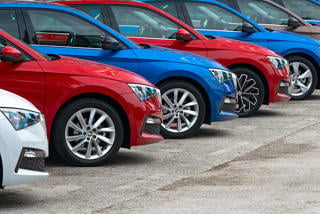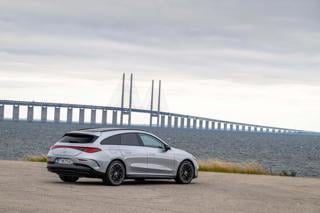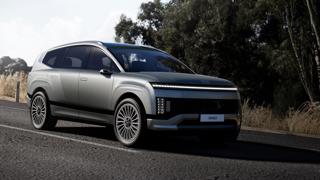Saul Furse, managing director of Vehicle Solutions at Radius
In the face of the current economic landscape, many transport and logistics managers will be contemplating difficult decisions as they evaluate what solutions might prove best in improving operational efficiencies and protecting margin for their business.
For many business owners and fleet managers who are seeking to grow and adapt their fleet, this will include addressing concerns about whether to buy vehicles for their fleet or whether to look at other options, such as leasing and hiring vehicles.
Ultimately, no two businesses are ever the same.
So, let’s take a deep dive into what kind of options are suited best for different businesses and their challenges.
When is buying the best option?
Having bought a vehicle, businesses can feel rest assured that they own their entire fleet and can manage it accordingly, with no concerns about annual mileage limits or maintaining the vehicle to a specific standard (so long as it still passes its MOT).
What’s more, if you buy a vehicle for your business, the benefit is that you don't need to be concerned about a monthly payment, you own the asset and you can do whatever you want with it, including sell it if you need to.
However, buying a vehicle requires a fair bit of capital and also means fleet managers must temper with depreciation and maintenance costs on a regular basis.
When is hiring the best option?
Hiring is a flexible, convenient, and often more affordable way of getting a vehicle for business use.
It offers transport managers a choice of vehicles and duration of contract as well as the option of the latest models for however long it is needed.
Businesses don’t have to worry about value depreciation or maintenance and repair costs as these are usually included in the hire agreement. And ultimately: it’s cheaper to hire a vehicle than to buy it.
Depending on a businesses’ demands, there are two hire options - flexible hire and long-term hire – each with its own benefits.
Flexible hire gives the option to hire a vehicle for any period of time of up to three years and the extra benefit of returning it at any time.
Plus, it includes service, maintenance, repair (SMR) replacement, recovery, road fund licence and tyres.
It’s a great option for short business contracts when there is uncertainty about how long the vehicle will be needed for.
Long term hire is the ideal solution for when a vehicle needed for an extended period. It can also be customised to meet business requirements.
This is the best choice for businesses who know their demands for the long term. And it will prove to be the less expensive option, too.
What’s more, vehicle hire is a great solution to start your green transition.
If electric vehicles (EVs) are too expensive to buy upfront, EV hire solutions are affordable and packed with benefits.
Offers can be tailored to meet your exact business needs and requirements.
However, an aspect of hiring some may see as a disadvantage, is that you must predict how many miles your fleet is likely to traverse over the course of the hire. And, of course, going over the mileage limit can come at a cost!
When is leasing the best option?
Vehicle leasing is another way to save money and still get the precise vehicle wanted.
Fleets can get a lease for two or three years, with or without maintenance, and can enjoy fixed monthly payments, that are usually lower than other alternatives.
What’s more, a lease usually has more flexible terms, is easier to obtain, and alleviates any worries about vehicle depreciation.
Similarly with hiring a vehicle, if you substantially damage the vehicle, you will need to pay a charge.
However, whether you buy, lease or hire, a damaged vehicle and the associated repair costs are never something you’ll want to have to face.
It is safe to say that the answer on whether to buy, lease or hire a vehicle differs for every business across the globe.


















Login to comment
Comments
No comments have been made yet.